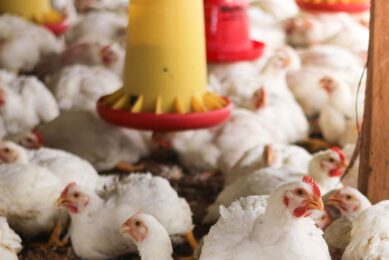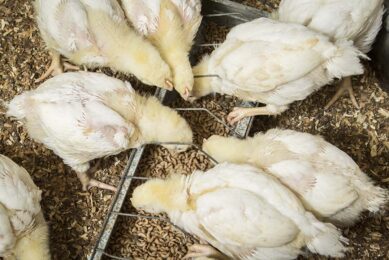Research: Composting reduces bacteria in broiler litter
In-house litter composting has been shown to reduce bacteria in broiler litter, according to a recent USDA study.
US Poultry & Egg Association sponsored the study “Bacterial re-colonisation of in-house composted broiler litter” by Dr John P. Brook of the USDA Agricultural Research Service (ARS), Genetics and Precision Agriculture Unit in Mississippi State.
Reduction in natural flora of waste residual however, may lead to increased re-colonisation of other bacteria pathogens due to reduced competition.
Laboratory studies were conducted to: 1) determine re-colonisation of food-borne bacterial pathogens (by inoculation with Salmonella, Campylobacter, Clostridium and Listeria) in composted and non-composted litter; 2) identify bacteria associated with reduced pathogen re-colonisation; and 3) correlate ammonia levels on pathogen re-colonisation.
Food-borne bacteria were higher in composted litter in weeks 1 and 2. However, bacterial levels were identical in both litter treatments by week 7. Upon ceasing addition of inoculated fecal matter, food-borne bacterial pathogens were overtaken by normal litter bacteria in both treatments. No differences could be attributed to ammonia levels.
In summary, while initial (week 1 and 2) microbial levels were reduced and food-borne pathogens were increased in composted litter, bacterial levels were similar in composted and non-composted litter treatments by week 7.
Source: US Poultry & Egg Association
Join 31,000+ subscribers
Subscribe to our newsletter to stay updated about all the need-to-know content in the poultry sector, three times a week. Beheer
Beheer








 WP Admin
WP Admin  Bewerk bericht
Bewerk bericht